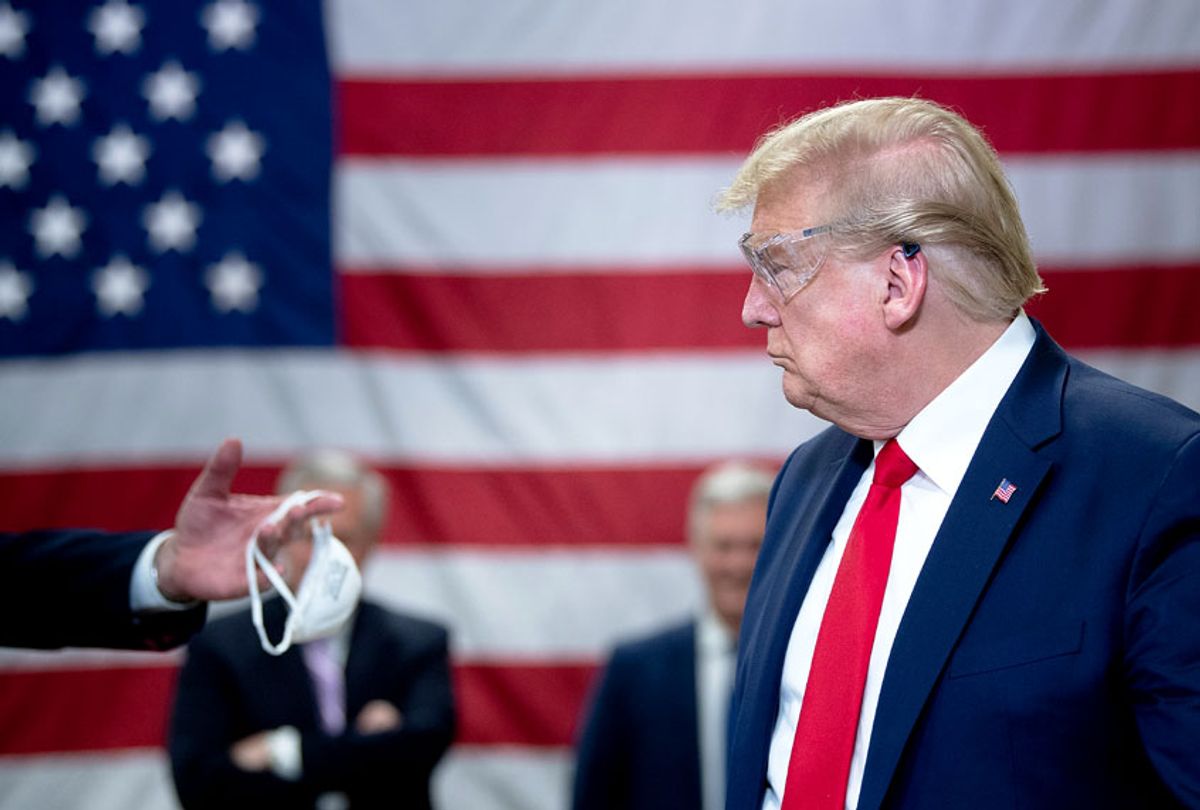Just like private businesses across America, federal government agencies are plotting how to get their employees back into their offices. The Environmental Protection Agency sent an email to all of its employees late last week telling them it's set to begin reopening offices in several regions. One problem: the biggest union of EPA employees says the government hasn't spoken to them about it, and that they have no reason to believe the plan to reopen is safe.
Andrew Wheeler, the administrator of the EPA, wrote that offices in Atlanta, Seattle and Lenexa, Kansas are ready to proceed to "Phase 1" status, implying the beginning of the end of working at home and the expectation that employees will start the three-phase process of moving back into the office. In response, the American Federation of Government Employees Council 238—which represents more than 7,500 EPA workers—sent a letter to the agency expressing "utter surprise" at the announcement, saying "we see no data or other analysis to support [the assertion that those regions have met the safety criteria to reopen], and we have had no participation in the discussion of whether any EPA offices meet the gating criteria." The union also said the EPA has not bargained or discussed with them the process for sending employees back to work.
Gary Morton, the president of AFGE 238 and a former EPA employee, says that the root of the problem is the complete failure of the agency to include the union in its decision-making process, or even to share information. (Characteristically, he says, the EPA has not responded to the union's letter.) "There has not been a discussion of what happens if an employee goes back to work and tests positive. There are no protocols," Morton says.
At least 40 EPA employees have tested positive for coronavirus, and Morton personally knows one who has died. The absurdity of withholding information from the workforce is particularly high in this case: "We're scientists. EPA is full of scientists. We just want transparency."
The larger context for the current argument is the Trump administration's determination to sideline and disempower federal unions in any way possible. The administration has issued a series of memos designed to restrict the power of unions at federal agencies, including limiting what they can bargain over and cutting back on the time and resources that employees are granted for union business. Though some of those rules are still tied up in court challenges, the effect has not been limited to legal restrictions—the entire posture of the administration has been hostile to public unions. Now, those unions see little reason to believe that the agencies have their best interests at heart in the reopening process.
"This administration has not been friendly to federal employees. So why should we trust them, when they've done everything in their power to create a hostile work environment over the past four years?" Morton says. More than perhaps any other federal agency, employees at the EPA under the Trump administration have faced a dual assault on both their union power, and on the underlying power of the agency itself, which is seen as a job-killing bureaucracy by many right-wing business advocates who make up Trump's base. Morton sees the anti-union posture as part of a strategy to make work so unpleasant that longtime employees will leave the EPA for good.
"It's a civil war at the EPA, between the political appointees and the career, senior EPA employees," he says. "[The Trump administration] put these people in there who do not care about the workers, don't care about the environment, don't care about public health, only care about economics and politics."
An EPA spokesperson says: "The unions will continue to be regularly informed as the agency moves through its rolling reopening; however the Administrator talks directly to the employees and does not need to speak through the unions. The agency will fulfill any bargaining obligations required by law."
With the law tilted against them, and no plans for any concerted labor action, there is little reason to think that the union will win this fight. Morton says the union does not tell employees not to follow orders; rather, it tells them to follow orders and file a grievance later. For at least the past four years, that strategy does not have a winning record.




Shares